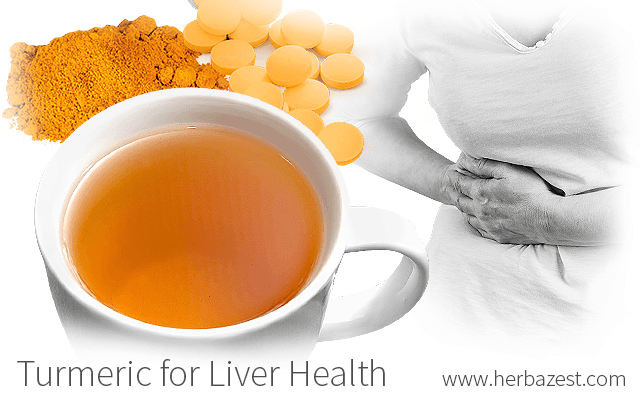As the liver is a major organ - responsible for purifying the blood, fighting infection, and regulating bile production in the body - there is great interest in finding new liver disease treatments. Since hepatic disorders constitute one of the main causes of worldwide mortality, the use of turmeric for liver health has caught the attention of the scientific community and become the focus of current research.
TURMERIC HAS CHOLERETIC, ANTI-INFLAMMATORY, AND ANTIOXIDANT PROPERTIES AND, IN THE PROPER DOSAGE, HAS BEEN SHOWN TO BE SAFE, WITH NO SIDE EFFECTS ON THE LIVER.
Liver Diseases: Causes and Triggers
Liver disease is a serious illness that can lead to cirrhosis, or the permanent scarring and loss of functionality of the liver. Some common symptoms of liver disease include jaundice, nausea, vomiting, weight loss, and loss of appetite. Meanwhile, the causes can be attributed to a number of both preventable and unforeseen factors related to lifestyle and predisposition.
Common risk factors for liver diseases are:
Presence of liver toxins in the body
Genetics
Obesity
Age
High cholesterol levels
Pre-existing diseases and illnesses
However, other circumstances, apparently unrelated, can also trigger liver problems:
Certain medications and drug interactions
Exposure to chemicals, such as cleaning agents and paint thinners
Over-consumption of alcohol
Viruses and infections
How to Use Turmeric for Liver Health
The use of turmeric for liver health owes much to the hepatoprotective action of its active ingredient curcumin, which holds antioxidant properties and inhibits the activity of pro-inflammatory agents found in the body. The following herbal preparations are among the best ways of unlocking the power of turmeric's benefits for liver health.
Turmeric decoction. Stronger than tea, a turmeric decoction can help jumpstart the choleretic activity of turmeric for liver health. Boil a chopped and peeled turmeric root in hot water for one hour. Add honey and spices just before serving.
Culinary use of turmeric. The recommended dosage of culinary turmeric is about 1,500 - 3,000 mg daily. For bold color, woodsy flavor, and a delicious new way of protecting the liver, sprinkle turmeric spice onto rice dishes and other savory meals.
Turmeric tablets. Tablets formed from turmeric's curcumin are paired with other compounds and enzymes for greater absorption, increasing turmeric's effects on the liver. A dose of approximately 500 to 1,500 mg is recommended daily.
Turmeric's Hepatoprotective Action
In recent years, numerous pre-clinical studies have sought to uncover the molecular mechanisms that form the relationship between turmeric and liver health.
A study published in 20161 noted significant improvements in both bile flow and excretion of bile acids from the liver following treatments with decoctions made from the turmeric root.
In an earlier study2, curcumin was shown to decrease gene expression in the hepatitis C virus. In this study, the combination of curcumin and interferon alpha (IFN-) also demonstrated the ability to block replication of the virus, allowing room in the scientific community for greater possibilities for clinical research on turmeric's liver health benefits.
Other Herbs for Liver Health
Soybeans, garlic, artichoke, and asparagus are a few other hepatoprotective herbs that can help to further potentiate the effects of turmeric on the liver. For best results, creatively prepare and season these foods with turmeric alongside healthy, plant-based oils for better absorption.
When it comes to uncovering alternatives to conventional medicine, new sources of inspiration have been found in the turmeric root, whose anti-inflammatory and choleretic properties are believed to play an important role in the treatment and prevention of liver disease. Despite a need for greater research, the efficacy and safety of turmeric liver treatments has already been suggested by numerous scientific studies.
Sources
- Comprehensive Reviews in Food Science and Food Safety, Curcumin and Liver Disease: from Chemistry to Medicine, 2013
- National Institutes of Health, National Institute of Diabetes and Digestive and Kidney Diseases, Fatty Liver Disease (Nonalcoholic Steatohepatitis)
- National Library of Medicine, Liver Diseases
Footnotes:
- Journal of Food Science. (2016). Choleretic activity of turmeric and its active ingredients. Retrieved September 16, 2016, from: https://europepmc.org/article/med/27228476
- Federation of European Biochemical Societies. (2009). Curcumin inhibits hepatitis C virus replication via suppressing the Akt-SREBP-1 pathway. Retrieved September 16, 2016, from: https://pubmed.ncbi.nlm.nih.gov/20026048/




